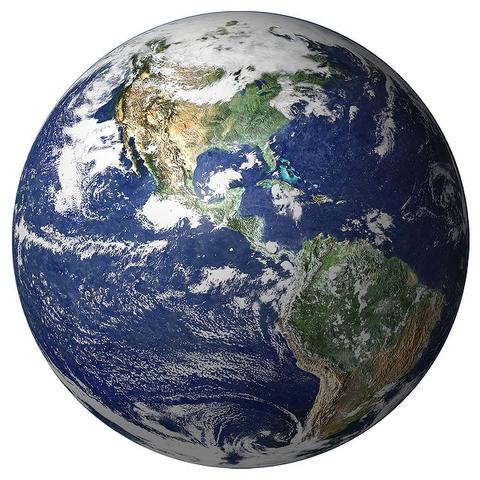
Geosciences-Planetology course (GEO-P)
The GEO-P course focuses on understanding terrestrial and planetary systems. Within the STePE specialization, the disciplinary courses for the different pathways begin in the first year of the master's program. The M2 year is made up of electives that enable students to specialize in geosciences and/or planetology research subjects.
Colorations Geosciences (GEO) and Planetology (P)
Through the GEO program, students are trained for careers in earth sciences in the broadest sense: geology, geophysics, geochemistry, mineralogy, paleoclimatology, petrology, geodynamics. Emphasis is placed on the research issues raised by these disciplines, as well as their application to the exploitation of natural resources (fluids and minerals) and energies (fossil and renewable). Two pathways are available: Geosciences or Planetology.
In M2, some of our students join the "Planetology and Space Exploration" program (a shared inter-university program at the "Île-de-France" regional level for students with a physics and Earth sciences profile), which provides exceptional training for research and teaching careers in planetology. This program has seen accelerated development in recent years, with the creation of new links between specialists in Earth sciences, the environment and astrophysics.
Objectives
The training offered focuses on geological (terrestrial environment) and planetological (planets, satellites, asteroids and comets) objects, the observation and measurement methods used to study them, and the modeling of the processes involved.
Methodological and quantitative aspects are covered from the M1 level, with the aim of deepening the theoretical concepts already covered in the bachelor's degree. Observation scales vary enormously, from nanometres in minerals and metres in outcrops, to sedimentary basins, margins and orogens of regional to global importance. Observation methods are equally diverse: on land, at sea, from space (remote sensing), by direct observation (field, drilling, in situ analysis) or indirect (geophysical and geochemical methods).
At the end of this training program, students will have solid experience of observation, both in the classroom and in the field, and will be able to integrate data from different origins/disciplines and place them in a global framework. Throughout the two years of training, emphasis is placed on teamwork to facilitate the integration of graduates into research teams (academic or private companies).
Organization
M1 courses consist of a core curriculum in the first semester and optional subject-specific units in the second semester. M2 courses are organized into units covering methodology (modeling, prospecting, physical measurements, IT, GIS), theory (mechanics, physics, geology, chemistry) and field placements (geological case studies for GEO, telescope observation for P). A number of courses are offered by partner institutions under special agreements.
In the first year, courses are taught in French, but course materials and a large proportion of subject-specific presentations can be given in English. In the second year, all courses and course materials are taught in English for GEO and in French for P.
Skills and knowledge
Students will acquire methodological knowledge in geosciences and planetology, combined with an overview of the multi-disciplinary theoretical analysis inherent in these disciplines. By gaining experience of a wide range of methods and concepts applicable to terrestrial and planetary environments, students can engage in original research, or work for the private sector by analysing and managing complex projects.
Admission requirements and prerequisites
Candidates must be highly motivated for research in geoscience-planetology. They must have a solid L3 level in Earth Sciences, and be able to work both individually and as part of a team. Some students from other backgrounds (geotechnics, physics, chemistry) may be able to join this program if they are extremely adaptable, and above all, have a well-considered career plan. Students wishing to enter the inter-university planetology course in M2 must demonstrate a research project in planetology and space exploration.
Job opportunities
Doctoral thesis in geosciences (geodynamics, tectonics, sedimentary geology, petrology and geomaterials, petroleum geology and geophysics) and planetology (mineralogy, climatology, geology, geophysics, plasma physics, geochemistry, remote sensing). Jobs in the exploration and exploitation of natural resources (oil, geothermal energy, geomaterials, etc.), development and management of active or abandoned sites at risk. Jobs in space exploration engineering, or GIS and computer analysis. Jobs in teaching and popularizing science.
Course leaders
Damien Do Couto
Géosciences
Fabrice Minoletti
Géosciences
Aymeric Spiga
Planétologie
Anne Verlaguet
Géosciences
